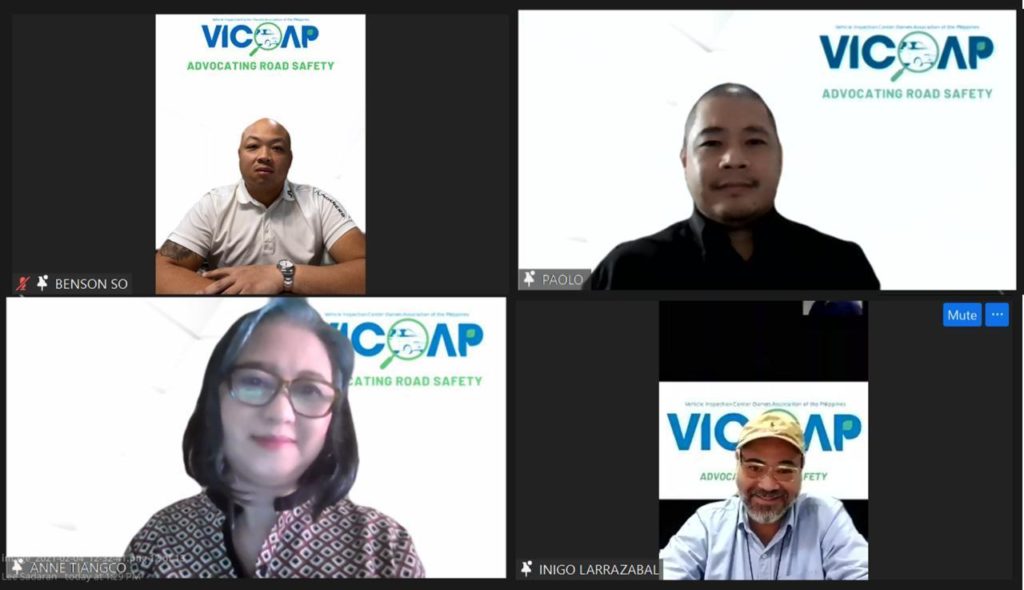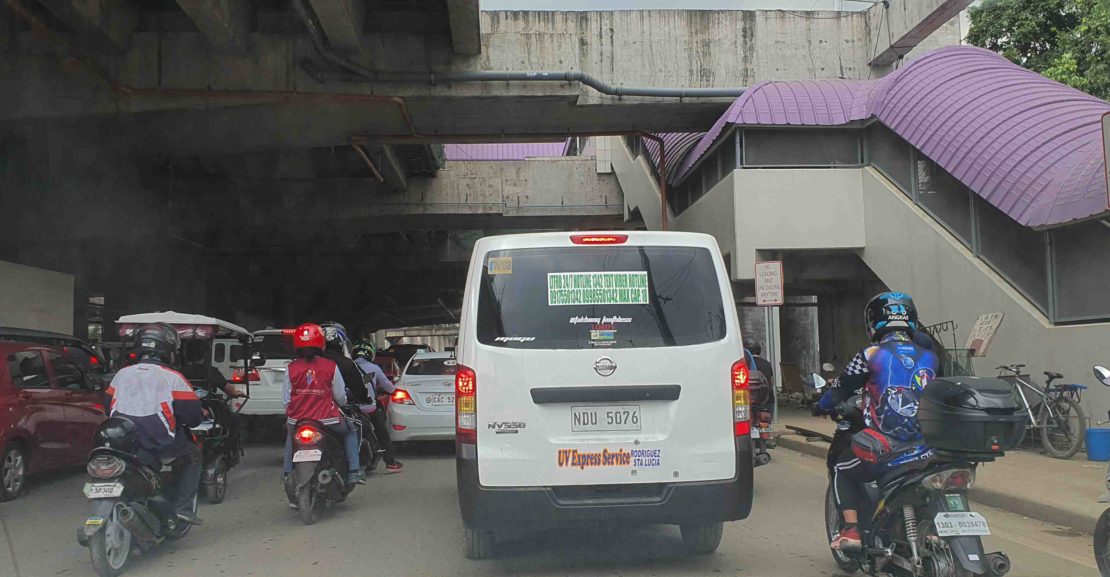The Philippines is Asia’s ‘“sick man” when it comes to road safety, with vehicular accidents reaping higher fatalities than COVID-19. This lapse, which has relegated the country to the tail end when it comes to the roadworthiness of its road-driven vehicles, can be corrected by upgrading the current testing methods using modern technology that brings a higher degree of accuracy and transparency. This has been the position made by the Vehicle Inspection Center Operators Association of the Philippines (VICOAP) after recently holds a virtual press conference.
The group pointed to the urgent need to address this inefficiency which causes more than 12,000 Filipinos to tragically lose their lives annually due to road accidents. This number is far more than the 10,000 deaths brought about by COVID-19. In 2019, the Metro Manila Accident Reporting and Analysis System annual report showed that 100,933 accidents incurred damages to property in the city alone. From a global perspective, a World Health International (WHO) global road safety report named road traffic injuries as the leading killer of children and young people. The same report noted that road traffic injuries have a total cost of about 2.6-percent of the entire country’s gross domestic product (GDP).

VICOAP President Iñigo Larrazabal emphasized, “This issue cannot continue. We aspire to be the premiere country when it comes to road safety. The program for improving testing for roadworthiness has been long overdue, and we can catch up by starting operations as soon as possible.”
VICOAP is the largest PMVIC group in the Philippines with 47 PMVIC centers located in various parts of the country. It is an association committed to ensuring best practices and continuous knowledge and the training of its members to constantly improve its services and the customers’ experience. VICOAP’s PMVICs perform globally accepted tests using automation, reducing human error and other untoward influences that may affect the outcome of a test. Testing takes only 15 minutes. CCTV cameras record the processes in all of the workspaces, making it possible for the examiners to check back and verify what actually transpired during the tests.
Benson So, Internal VP of VICOAP, elaborated further on testing for light vehicles and cars, “What we are doing is transparency through technology. We have a 70-point testing system that will check the roadworthiness of your car when you register it. We test many things from seatbelts, brakes, to headlights.”
In contrast, the test being conducted by the Private Emission Testing Centers (PETCs) only checks and assesses the quality of smoke belching out of the vehicle. Larrazabal gives this analogy as a comparison, saying that a PETC test was like “going to a doctor to check how healthy you are, and all he was checked was your temperature. But in the PMVIC test, we check everything. Mas comprehensive as we are talking about the safety of lives.”
The PMVIC test also reduces the opportunities for corruption widely believed by the public to be rampant in the old, outmoded system of vehicle testing. Larrazabal said, “We are constantly gathering data across the entire inspection process—-data which can reveal any statistical anomalies that would point to corruption. And because some parts of the process are automated, we know that they cannot be tampered with. In other cases, we can review the data in vulnerable areas to identify any patterns of abuse so we can then act accordingly.”
One PMVIC test for an automotive vehicle costs P1,500 + VAT annually, while a motorcycle test charges P600. Larrazabal explained that these rates are “a bargain to protect our families. You are paying P4 a day for those who have light vehicles, and P1.80 a day for those who have motorcycles. The increase in testing fees reflects the increased work we have to do to ensure that only the safest of vehicles are allowed on the roads. We cannot put a price on human lives.”
Larrazabal also maintained that their rates are reasonable and ensure the sustainability of the PMVICs. He said, “The pricing for testing for road-worthiness of vehicles we arrived at, with the Department of Transportation (DOTr) and the Land Transportation (LTO), reflects the amount needed to keep the centers healthy and operational. The safety of human lives is and should be first.”
VICOAP, its methods, operations, and costs were discussed in a public consultation in June 2020 held across the regions; it was held by the Department of Trade and Industry (DTI), the Department of Environment and Natural Resources (DENR), DOTr, and LTO. The main topic focused on guidelines for the motor vehicle inspection and maintenance program. Larrazabal, representing the association, recalled, “The public and transport operators were there. We explained our side and we did reduce our fees because that was discussed.”
Roadworthiness checks on vehicles remain one of the unresolved problems in the country, presenting a hurdle to past government administrations. They were only revived recently when President Rodrigo Duterte brought them back to the fore. Larrazabal maintained, “We have to remember that the ultimate goal of this program is to save more lives. President Duterte revived this initiative after over 12 years of inactivity because of the urgency. Anyone who opposes this program opposes the opportunity to modernize how we protect our families on the road.”

